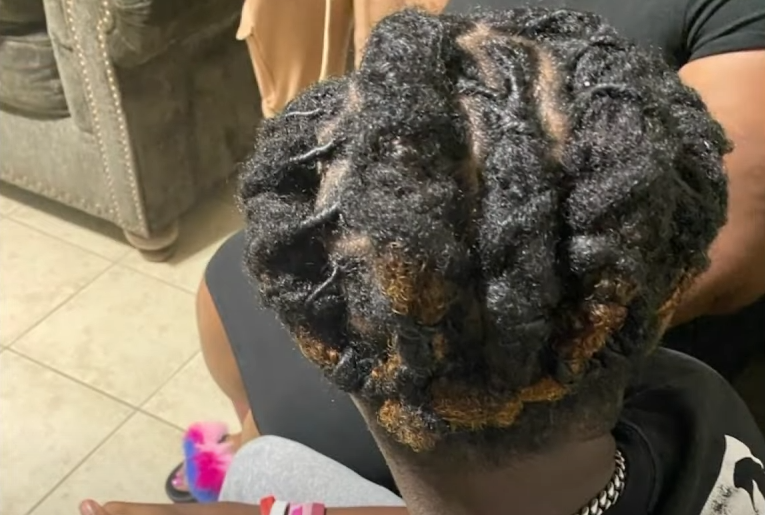The hairstyle of the African American student has led to a prolonged deadlock at Barbers Hill High School in Mont Belvieu, Texas.
This impasse has escalated into additional conflicts about the school’s dress code rules, which the student’s family has described as discriminatory.
Darryl George, an 18-year-old student, faced a 13-day suspension on Tuesday for refusing to alter his hairstyle.
The school cited non-compliance due to George’s braided locs, which, when let down, exceeded the prescribed limits outlined in the school’s dress code policy. This suspension followed George’s previous month-long stint at an off-site disciplinary program for a similar violation.
This incident has resulted in George spending more than 80% of his junior year away from his regular classroom, sparking concerns and criticisms over the severity of the disciplinary action.
George’s family contends that the punishment contravenes the CROWN Act, enacted in Texas in September, designed to prohibit race-based hair discrimination. However, the school argues that the CROWN Act does not specifically address hair length.
Darresha George, Darryl’s mother, expressed her family’s frustration, stating, “We do not see the light at the end of the tunnel. But we are not giving up.”
Texas Dress Code and Cultural Impact

A federal civil rights lawsuit against state authorities and the school system, as well as formal complaints with the Texas Education Agency, are the results of their ongoing battle against what they believe to be discriminatory practices within the school district.
This isn’t the first time Barbers Hill Independent School District faced scrutiny over its dress code. In 2020, a Black student was barred from school events unless he cut his locs, sparking widespread outrage and drawing attention to the district’s policies.
The school district, represented by Superintendent Greg Poole, defends its dress code, asserting its legality and educational value in fostering conformity.
However, George’s family contends that the district’s actions are unjust, arguing against the denial of an exemption request based on cultural and religious significance.
State Representative Ron Reynolds plans to propose an amendment to the CROWN Act in the upcoming legislative session to specifically address hair length, aiming to counter the school district’s perceived circumvention of the law.
Amid these debates and legal battles, George feels singled out, especially as he observes other boys in the school with longer hairstyles who haven’t faced similar repercussions.
His case raises broader questions about the enforcement of dress codes and their potential biases against certain cultural and ethnic identities within educational institutions.


Comments are closed.